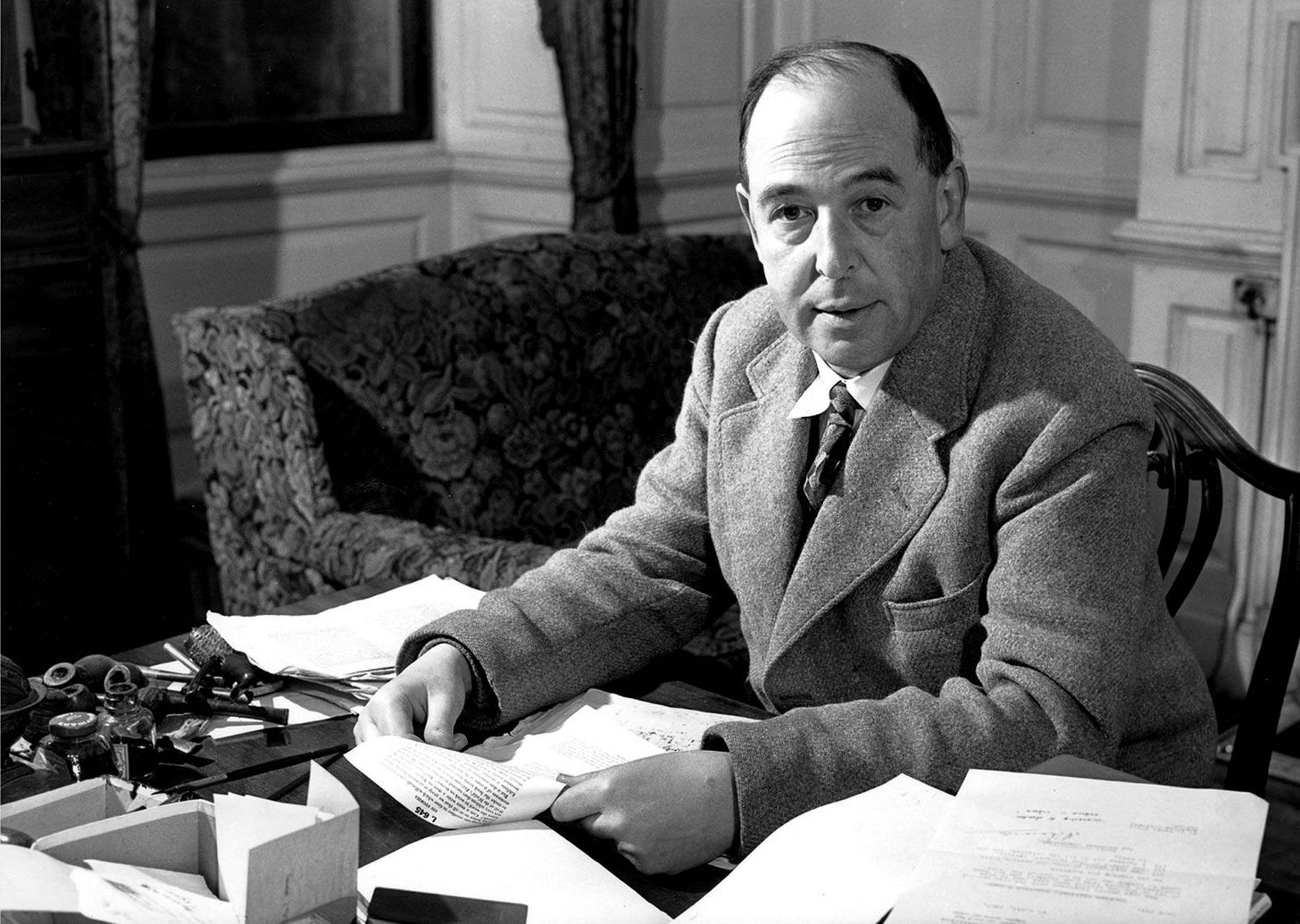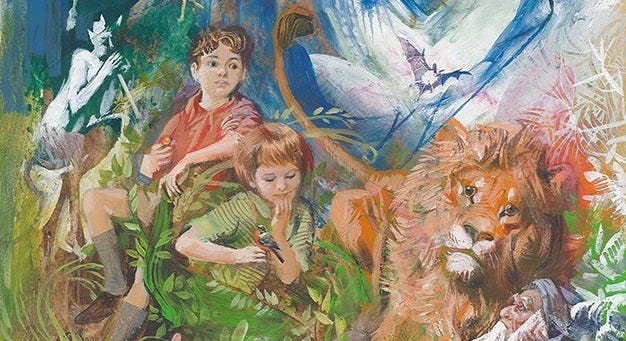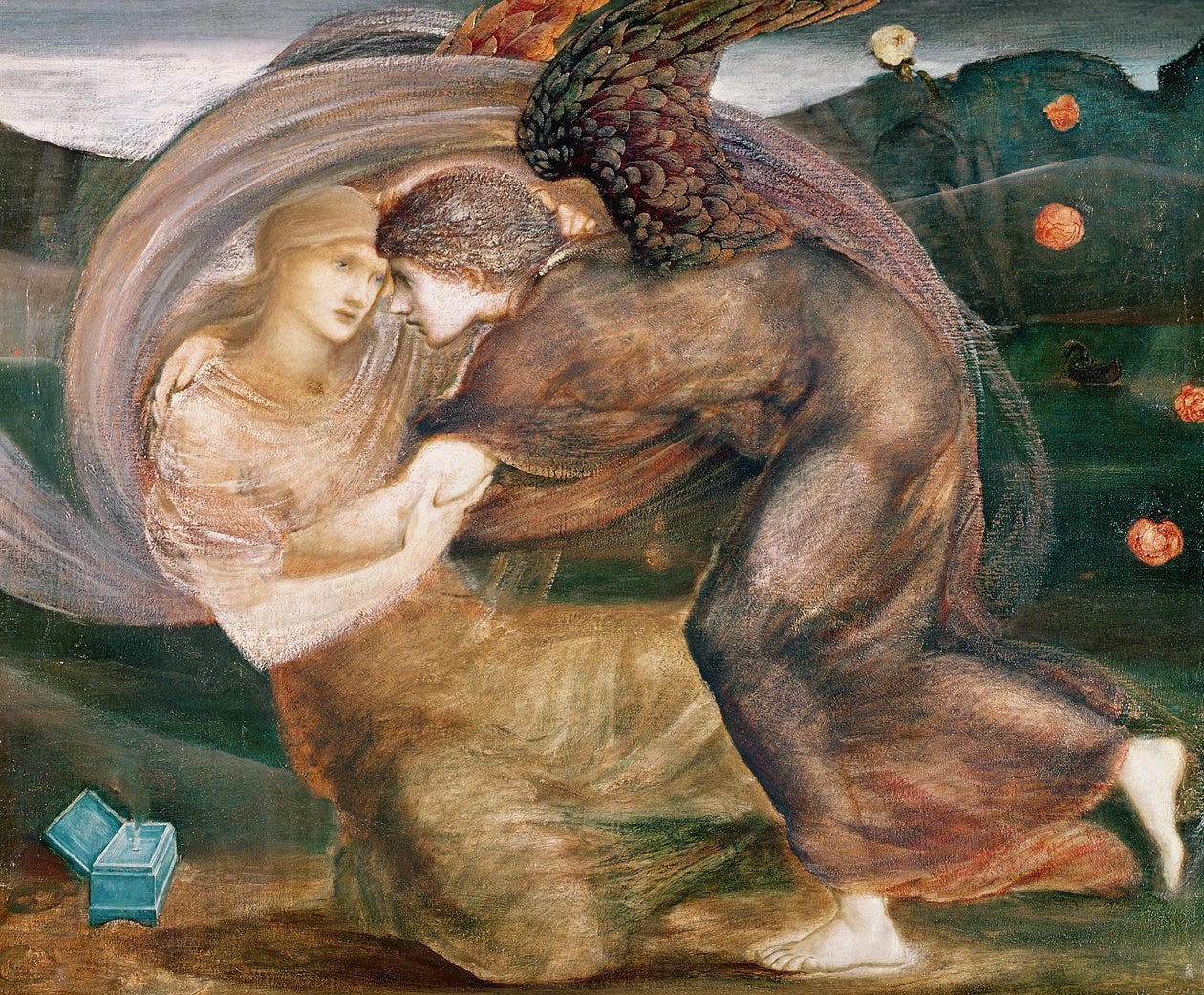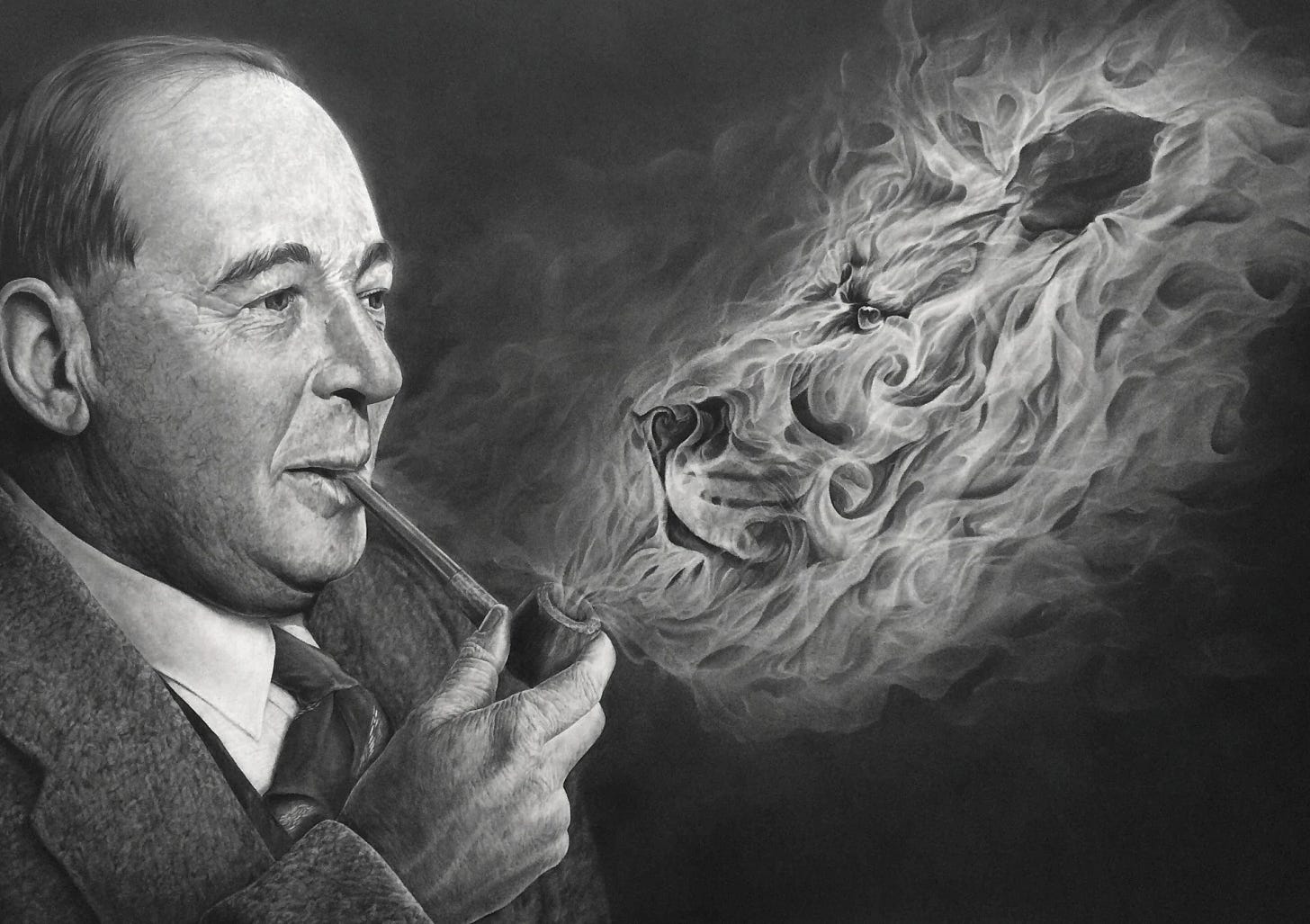Why Did C.S. Lewis Become Christian?
Christianity's most reluctant convert...
How did a brilliant young man who considered himself too smart for Christianity become the 20th century’s greatest advocate for it?
C.S. Lewis is widely considered one of the sharpest minds — and pens — of the last century. After becoming Christianity’s “most reluctant convert,” he turned his imagination to the task of expounding the faith for an age that dismissed it as stuffy and foolish.
Here’s how this philosophical giant turns critics into converts…
Reminder: you can support us and get tons of members-only content for a few dollars per month 👇
New, full-length articles every Tuesday and Friday
The entire archive of members-only essays
Access to our paid subscriber chat room
Surprised by Joy
Lewis’s approach to Christianity begins by understanding the nature of longing. Before his conversion, Lewis felt a profound spiritual longing — a feeling he intuited that all of humanity shares. Though this longing pointed him towards the most beautiful and sublime things the world has to offer (like music, art, and romance), he could not find anything that completely fulfilled it.
This longing, which Lewis termed “joy,” shook his atheist presuppositions. As he would later write:
“If we find ourselves with a desire that nothing in this world can satisfy, the most probable explanation is that we were made for another world.”
Lewis writes that this painful longing is responsible for many of humanity’s problems. It is meant to guide us to the love of God, who is the only one who can ultimately fulfill it. But when we run away from God, it drives us to become addicted to substitutes that temporarily soothe its urgency — substitutes that range from sexual encounters to substance use, and even aesthetic and intellectual pleasures.
Mythic Christianity
Throughout his life, pagan myths captured Lewis’s imagination. Unable to accept the idea that these noble stories were false while Christianity — which had been presented to him as prosaic and bland — was true, Lewis abandoned religion for atheism.
But he slowly began to realize that the common patterns between pagan myths and Christian stories were no accident. In fact, he came to believe that the universal patterns which emerged in classical mythology pointed to, and were fulfilled by, Christ.
In a time when a rather fossilized version of Christianity was failing to connect with the modern era, Lewis devised stories — and sometimes disturbing ones — to reveal the rich, engaging elements of Christianity that had been largely forgotten in the religious culture of his time.
A Matter of Infinite Importance
“Christ,” wrote Lewis, “if false, is of no importance, and if true, of infinite importance. The only thing it cannot be is moderately important.”
Once Lewis accepted Christianity as the world’s defining truth, he realized that it left no aspect of life untouched. For him, there was no casual or cultural Christianity — Christ’s presence in one’s life was urgent, personal, and absolutely demanding.
Christianity also transformed his experience of the external world. With Christ as the center of all truth, Lewis discovered that all of his passions — including philosophy, art, history, literature, friendship, and more — also led him closer to Christ.
From Modern to Universal
C.S. Lewis began his career as the archetypal modern man. Educated and naturally intelligent, he outsmarted the vague religion of his childhood and dismissed religious beliefs as outdated and foolish.
But when he discovered a Christianity that was both mythically satisfying and intellectually sound, Lewis was transformed. No longer a stereotypical man of his time, he became a voice of ancient Christendom speaking to the age of information, industrialism, and cynicism.
With hard-hitting logic, accessible writing, and a luminous imagination, Lewis’s legacy lives on in the Christians who credit their conversion to his works. Beyond the transmission of faith, he’s an icon for all who seek to bring the riches of the past into the struggles of the present.
For those who care about preserving goodness, truth, and beauty in the modern era, C.S. Lewis’s writings are a treasure trove of wisdom, hope, and encouragement.







This resembles the way Christians approach the events of the Old Testament. These older events were shadows on the wall. Christ was the fire itself - the myth that became fact.
Those older events echoed Christ as He was the Word that was there at the beginning - and pointed towards Christ as He is the final judge.
This article does a fine job of capturing the appeal of C.S. Lewis as both thinker and storyteller: someone who moved from intellectual disbelief to discovering in Christianity a response that was at once rational and poetic to the human condition. The central idea -longing (“joy”) as a sign that we are made for more than this world- resonates with a universal intuition and lends strength to his testimony. Equally valuable is how the text highlights Lewis’s ability to build bridges between myth, philosophy, and faith, updating Christianity for a modern audience without diluting its radical nature. In short, it is a reminder of why his work continues to inspire both believers and seekers alike. Thank you so much for sharing!!! 🫶